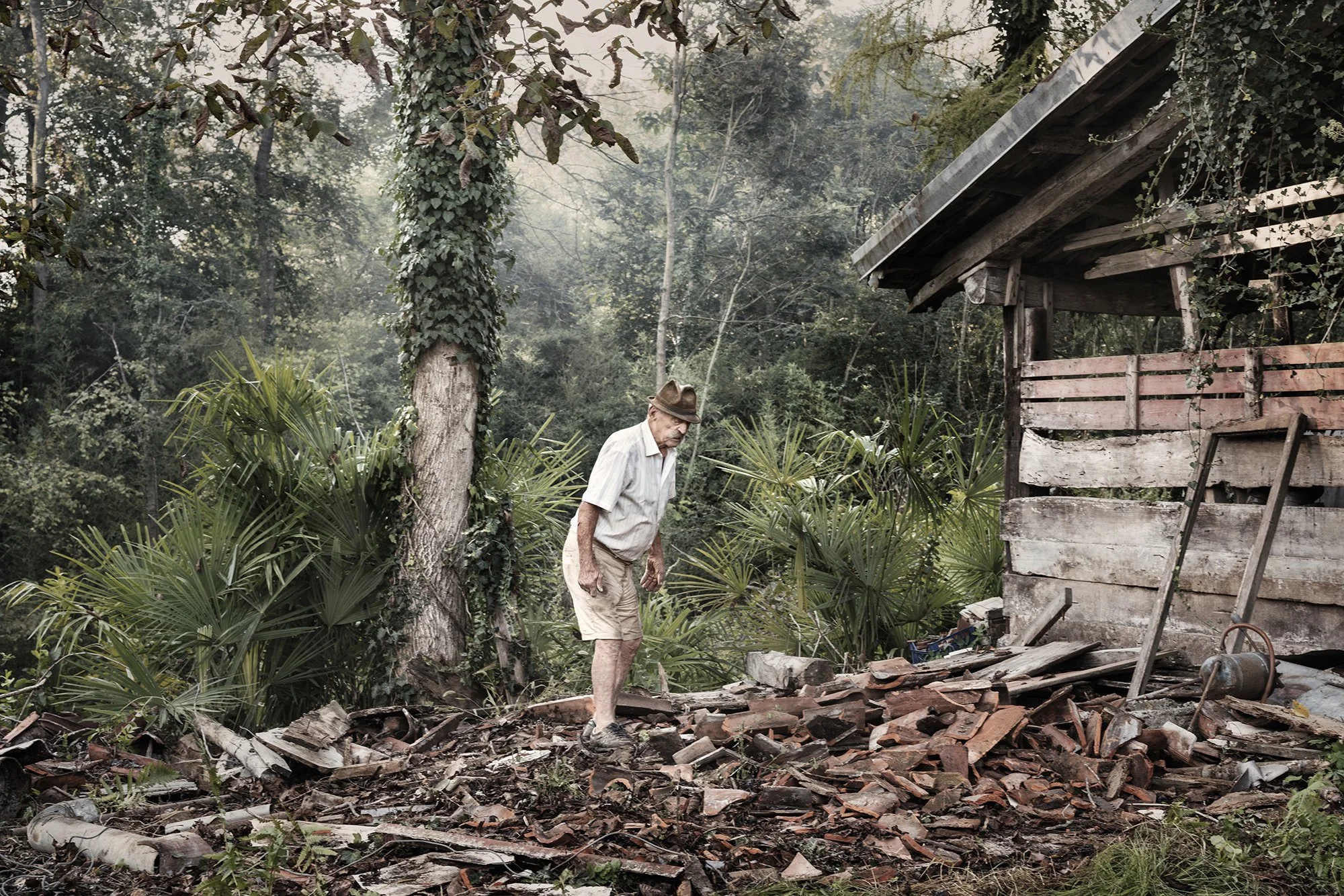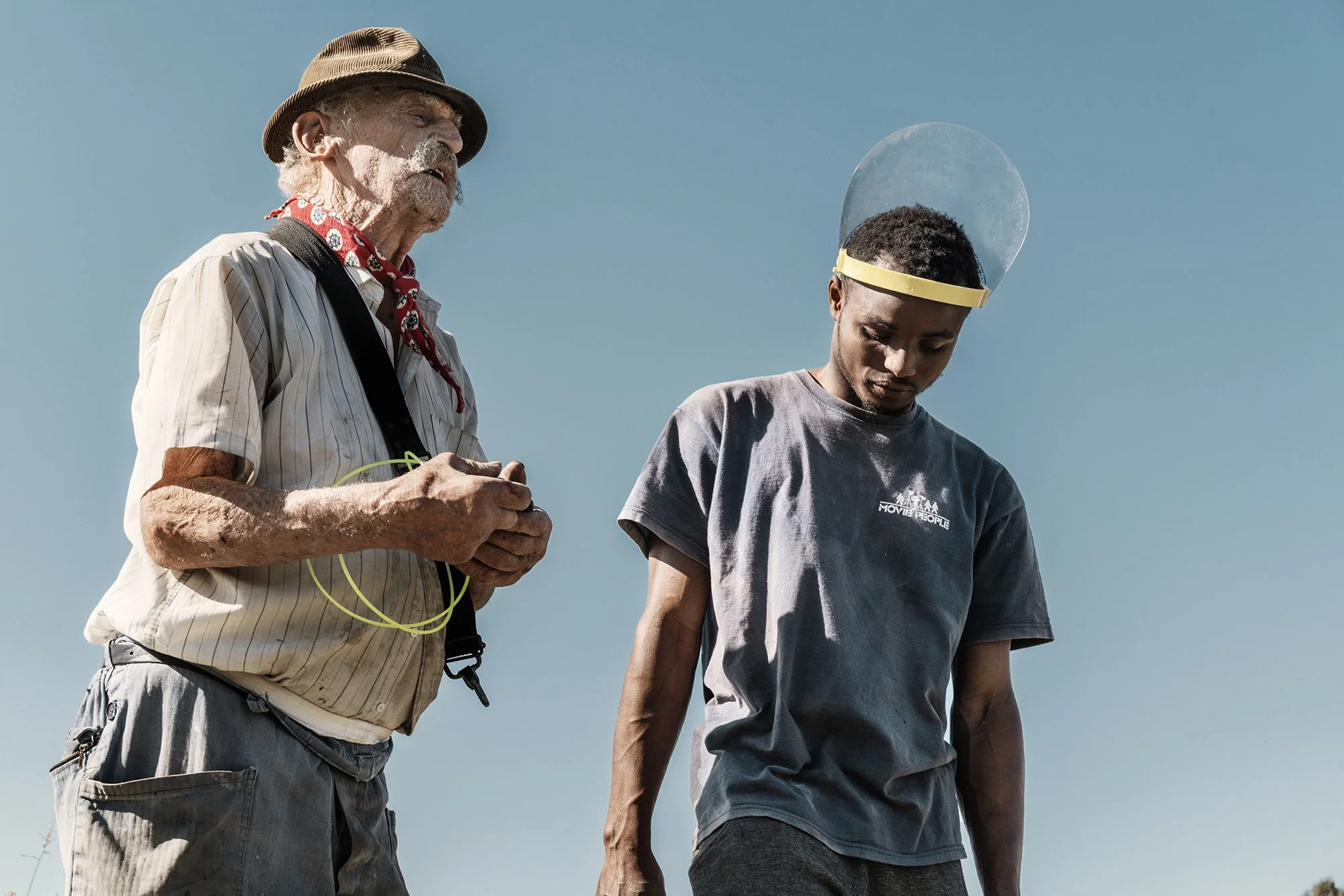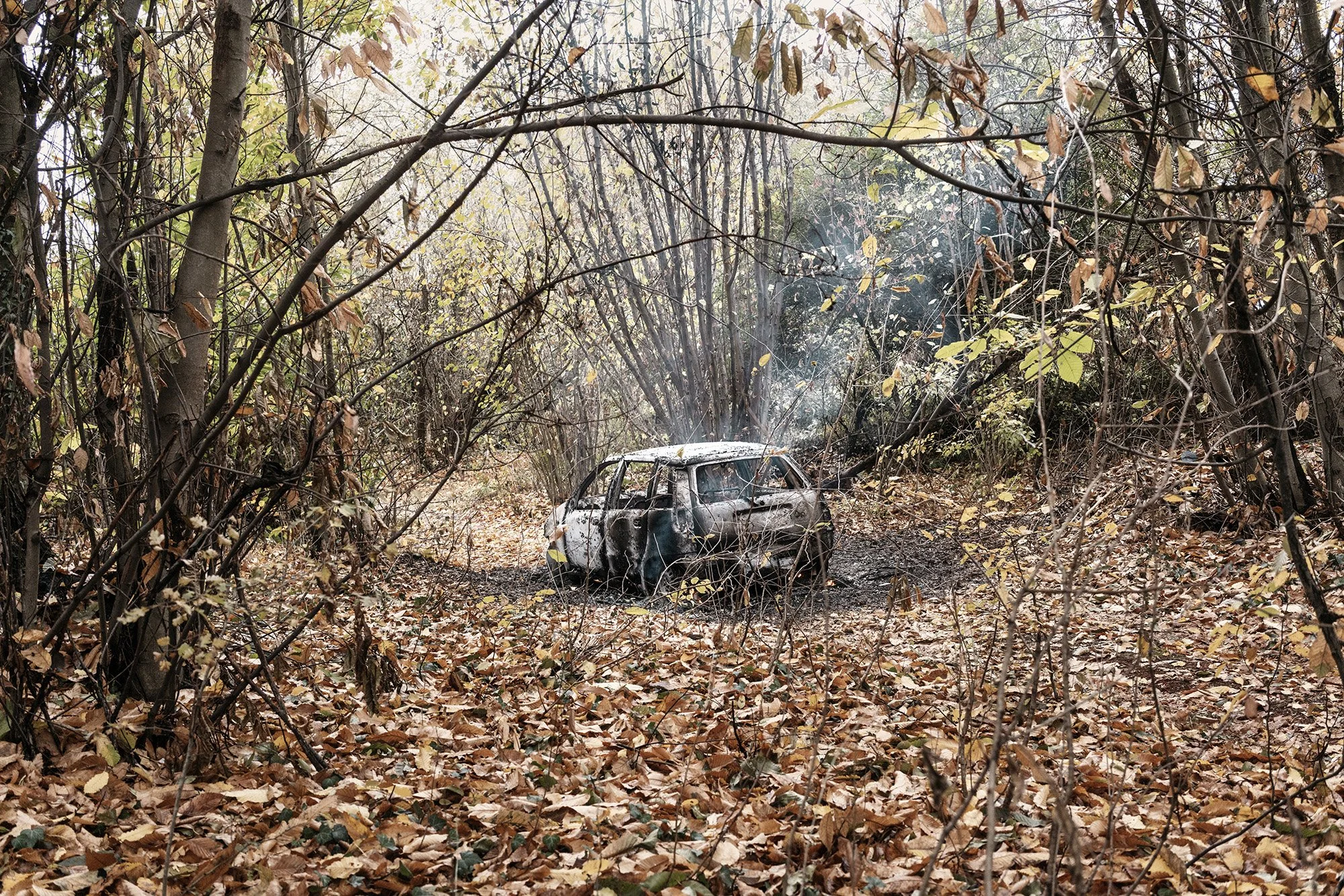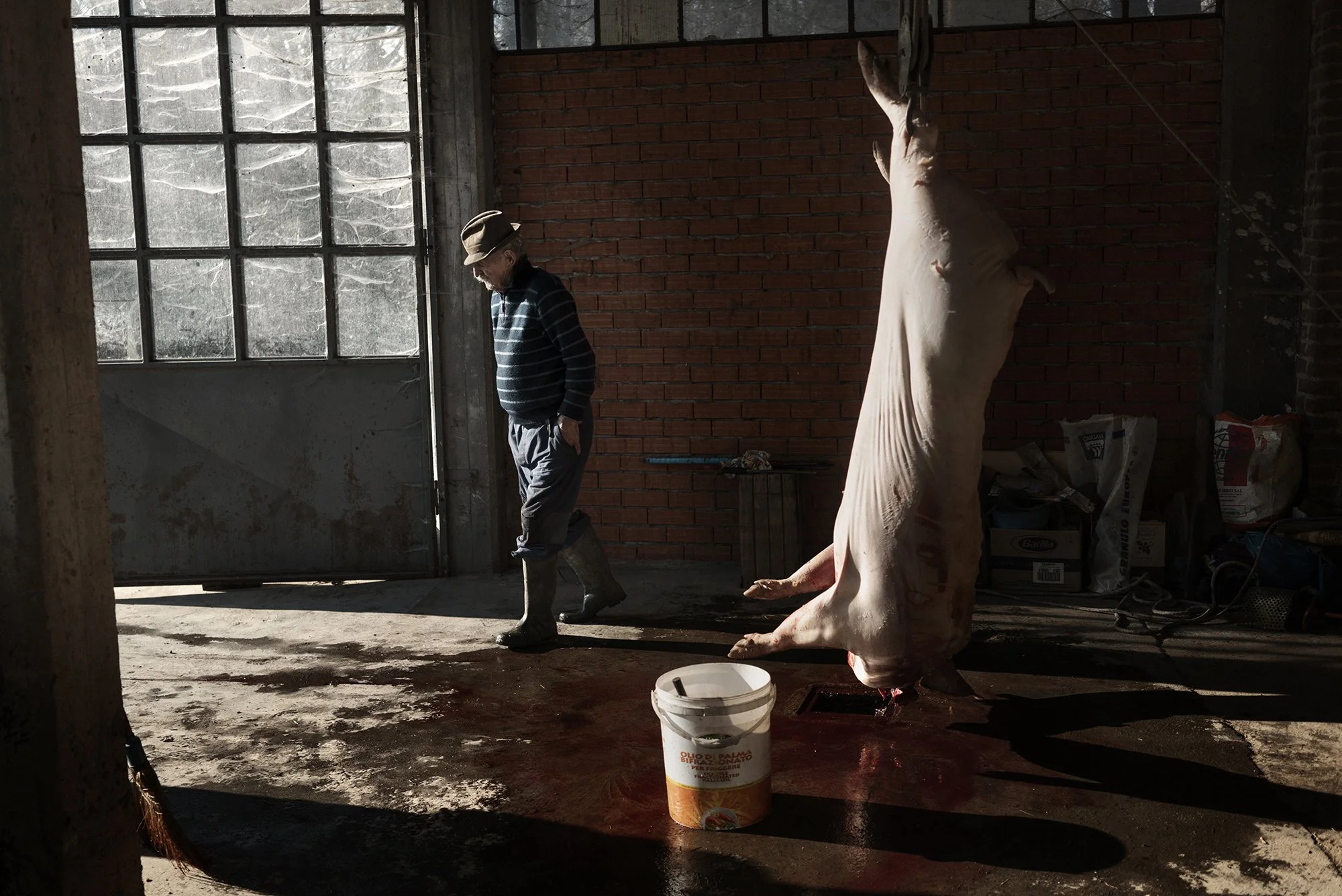Mingo
A Life Etched in Time – The Story of Domenico "Mingo" Baro
The initial spark that stimulated me to give life to this protracted reportage in Northern Italy, Piedmont and Vercelli countryside was the result of an observation that astonished me... most of the tractors that pass through Mazzè, the small Piedmontese town where I live, are very often driven by elderly people. Delving deeper into my research on family farming in Italy, I discovered a reality very different from the rest of the European Union. Here the vast majority of agricultural land (89.6 percent of the total, about 11 million hectares) is in the hands of family farms and 40 percent are led by people over 65 and 33.2 percent are women. This work was created to give voice to ethical and organic peasant farming, giving the protagonists a way to tell their stories and present themselves in the variety of their work.
Everything Mingo knows about farming, he learned from a book he bought in the 1950s for 48,000 Lire. And to think—he was told he could never work in agriculture again, a tradition passed down for generations in his family, after being seriously injured by a mule’s kick at the age of 35. The animal had been startled by a thunderstorm.
But today, well into his 90s, Domenico Baro—known to all as Mingo—still tends to his land with unwavering dedication. Born on November 17, 1924, in Vische, a small village nestled in the rolling hills of the Piedmont region near Turin, Mingo carries forward a legacy rooted in the soil and soul of rural Italy.
In his modest home in Mazzè, where he moved years ago, Mingo shares his stories while seated at the kitchen table. He sips red wine made from his own vineyard, breaking bread with a slice of aged cheese, drizzled with oil and salt—flavors rich with memory and tradition. His voice, like his hands, is weathered but strong.
He recalls being captured during World War II and deported to a concentration camp in Germany, after being seized in Asti. He survived by laboring on a farm, living off potato peels to avoid starvation, and unknowingly recovering from tuberculosis—a diagnosis he would only discover years later through medical tests.
Over the decades, Mingo wore many hats. He worked in a theatre in Turin, took on tough jobs as a laborer and mason, even losing fingers in a work accident. But he never lost his will to live, nor his grit. Resilience, perseverance, and a deep connection to the land have always been his compass.
Today, like in the past, his life flows with the rhythm of the seasons. In summer, he begins to fatten the pig, feeding it with corn, bran, potatoes, and vegetables from his own fields. In winter, as in a rural ritual, he transforms the animal into traditional Italian delicacies: salami, pancetta, cotechini, fresse, and sausage.
This is not just the portrait of a man—it’s a visual journey into heritage, endurance, and the poetry of rural life. Through the lens of documentary photography, Mingo’s story becomes timeless. A testament to the human spirit, captured in the details of a life lived close to the earth.



















